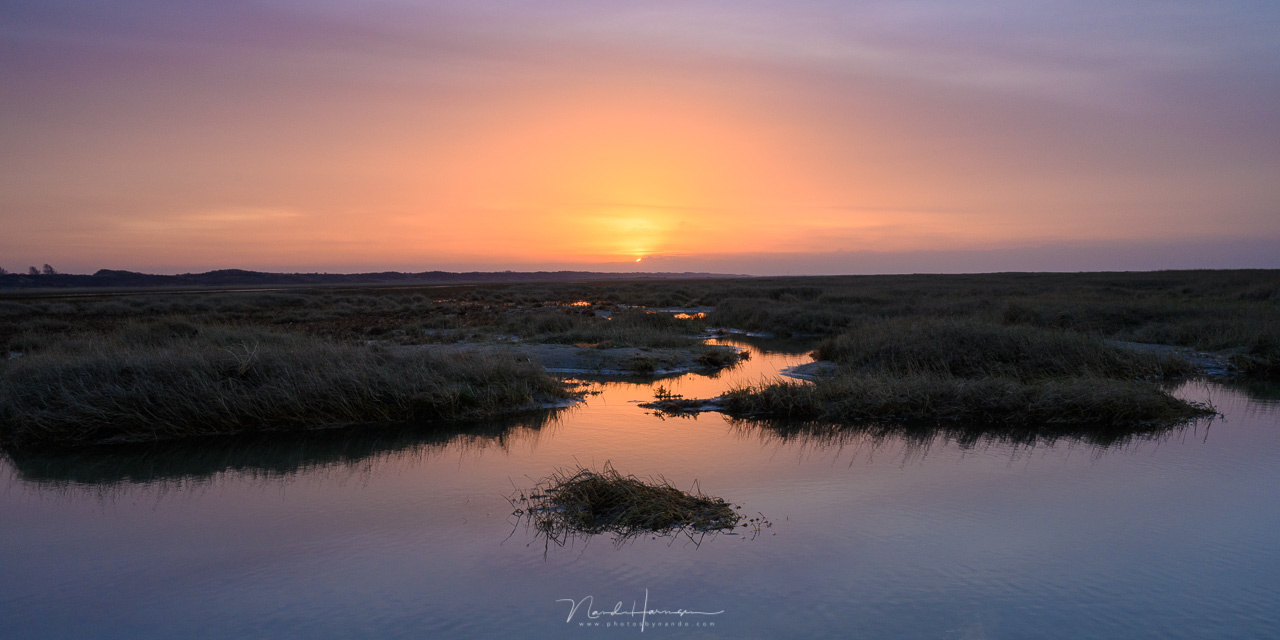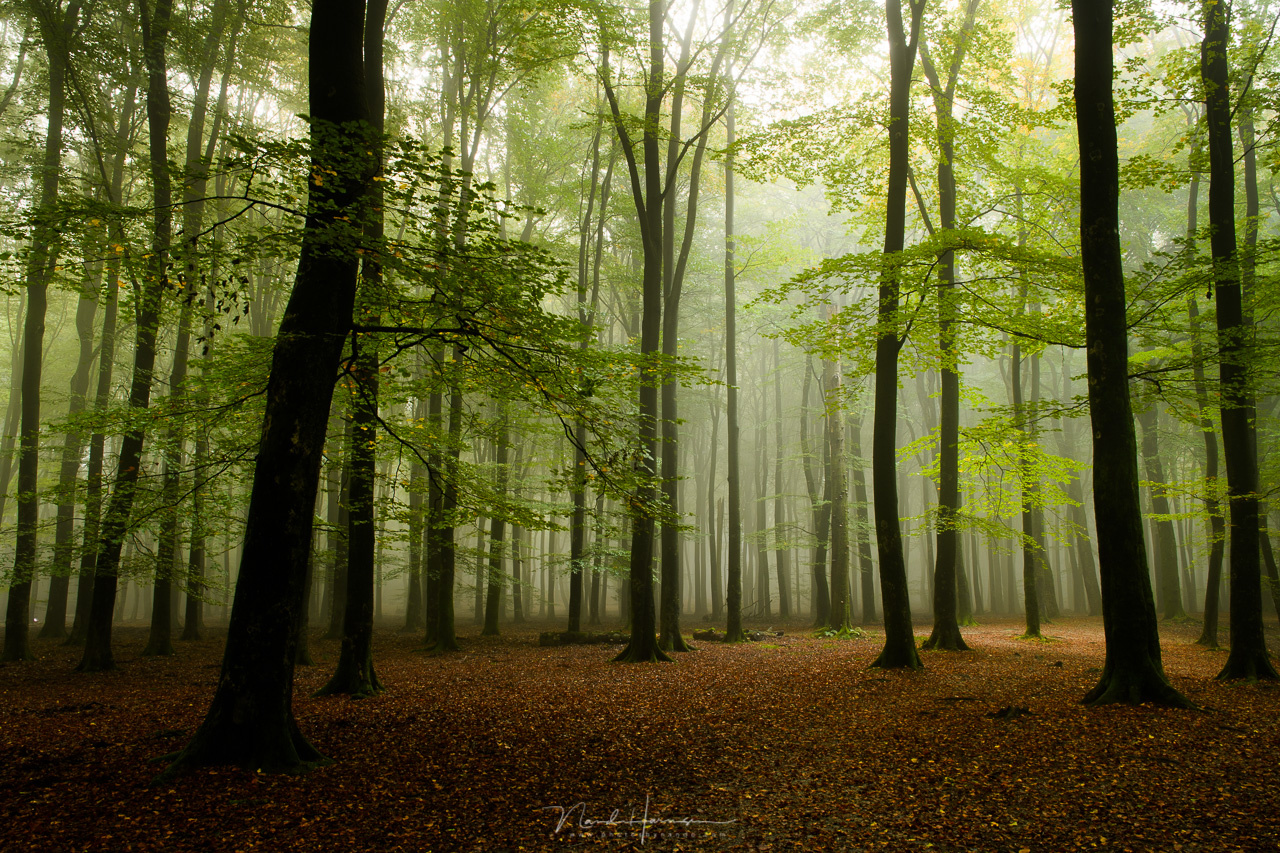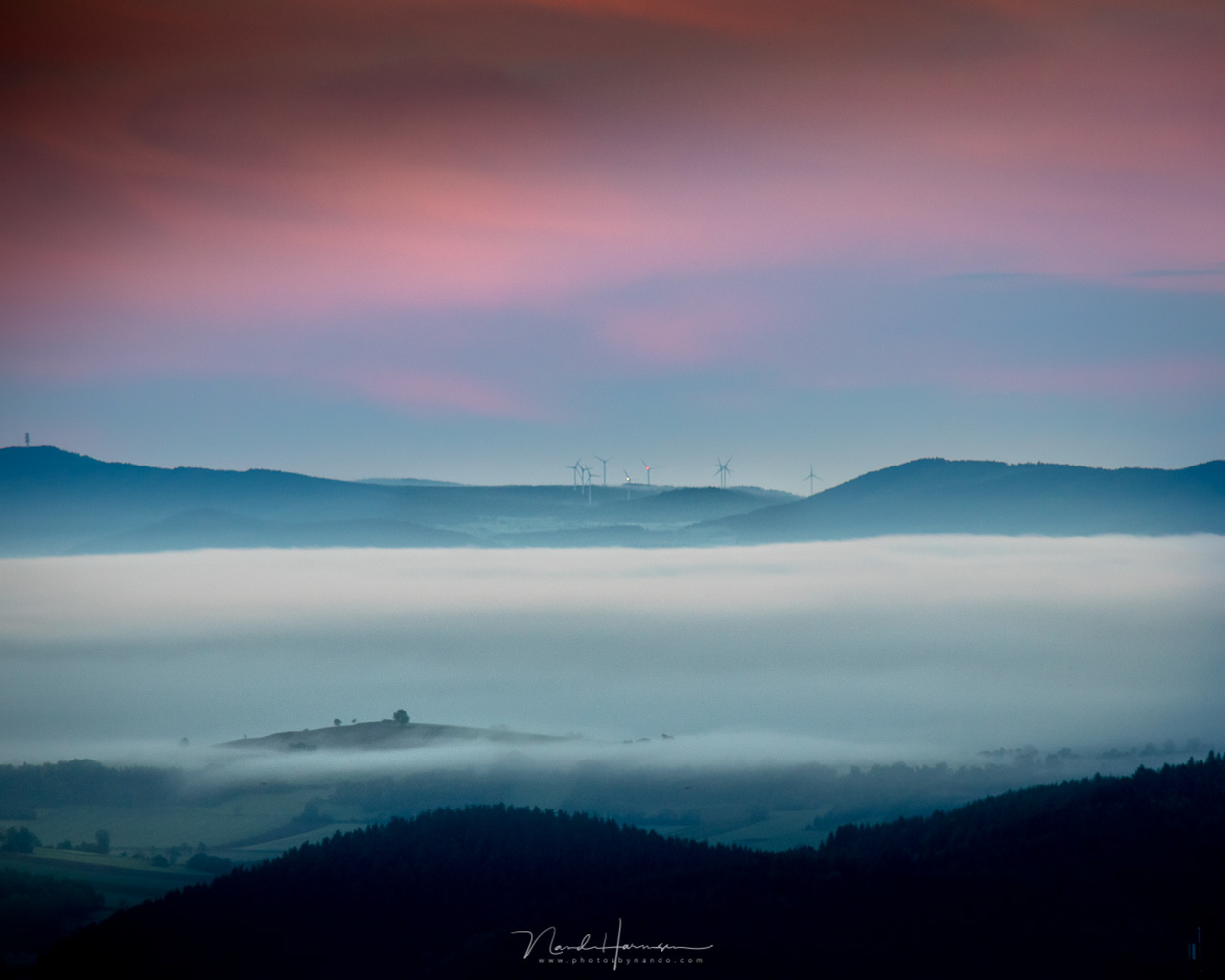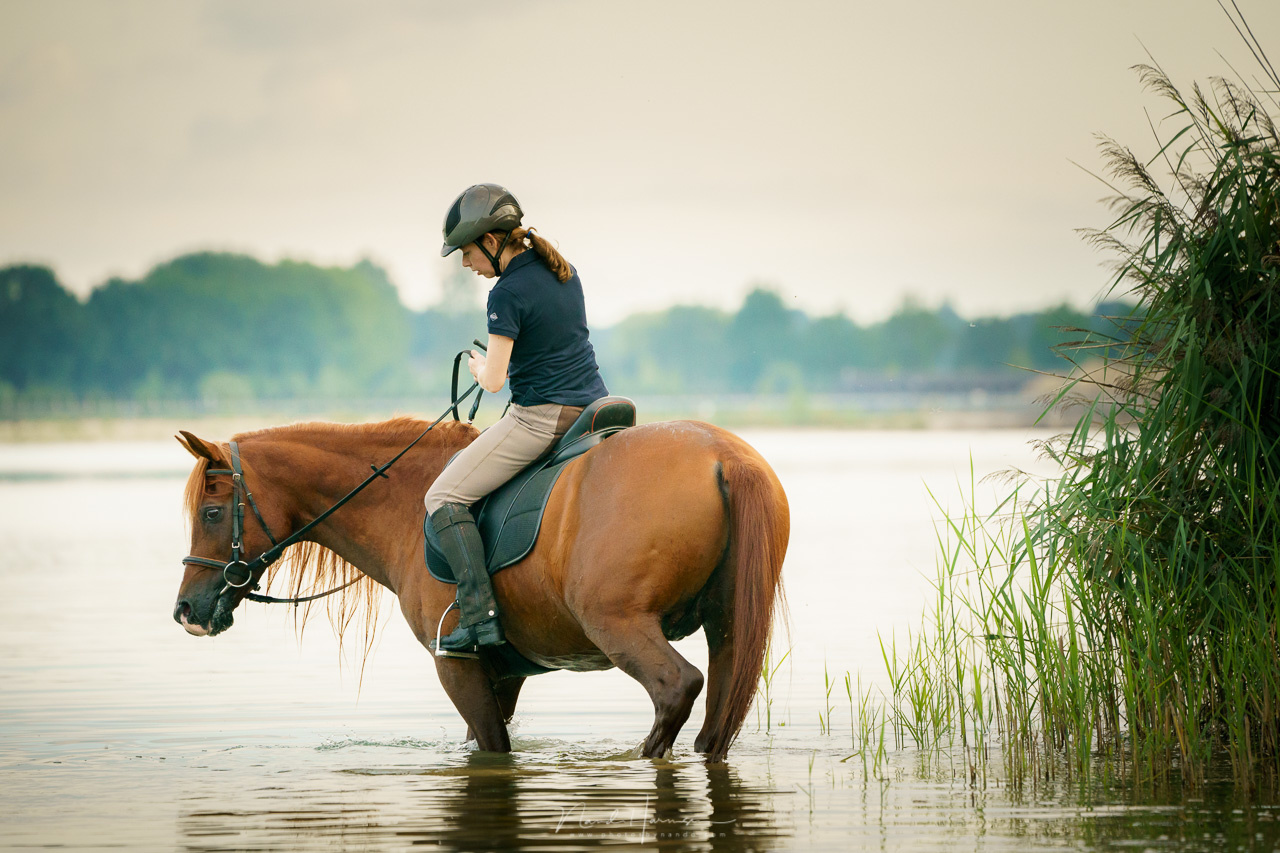I keep on wondering about the discussions of photographic enthusiast about camera technology and brands. Some enthusiasts even react very angrily at brands they used to have, or at other people when they mention some sort of shortcomings of their new camera. I would think a camera is just a tool… isn’t it?
Modern cameras are a wonder of technology. The possibilities are almost endless and every year manufacturers think of new options that were thought almost impossible. It makes taking photos easier, and often more difficult at the same time. Cameras need to be configured to address the personal wishes of the photographer. Menus have sub menus, and sub menus have their own sub menus. Everything can be customized and buttons assigned. Screens have been introduced in the viewfinder, rendering mirrors and pentaprism unnecessary.


I do like all the technological progress. It makes it possible to acquire the wanted result more efficiently, or easily. In some occasions it makes photos possible that weren’t possible before. I always think the technology must be in service of the photographer, and not the goal in itself. It is the same about camera brand. Why should that be important if the tool you use gets the job done?
Of course, there is a difference between all those camera brands. One camera has more options than others, and one brand may use a different technology than the other. An amazing face-AF and eye-AF may be perfect for a portrait or wedding photographer, while the landscape photographer couldn’t care less. Just like shooting 20 frames per seconds. It's just a small part of photography that will benefit fully from this possibility. The same is for a huge dynamic range. A landscape photographer that uses HDR techniques and filters will almost never have the need for that kind dynamic range, while the wedding photographer could benefit from it.


The thing I am trying to make clear is that those technologies and possibilities of a camera may be amazing, but no photographer will ever make use of every single option; they just use the part that is important for their kind of photography. And of course, it is amazing if your camera can shoot with a dynamic range of 14 stops or more, or if that camera can shoot 20 frames per second, or has face-AF and eye-AF that can even recognize and choose between persons. But that technology does not determine a good photo. And that is exactly why I am writing this article. When you change brands or buy a new camera that has features that aren’t available in the other camera, it does not mean that your photos are becoming better, or that the other camera is suddenly a bad one. But that is exactly what I hear and read way too often.


I had a participant at one of my masterclasses that had changed brands. He used to shoot with a Canon EOS 5D mark III and replaced it by a Sony A7R III. When we talked about that decision he mentioned it was the best decision he ever made, because his pictures never had that amount of detail, and his new camera had eye-AF, and a large dynamic range, and buttons that could be customized, and there was no mirror anymore, and so on. Since he switched to the other brand, the previous one was suddenly a bad camera, that couldn’t make any good pictures. Since I still use Canon, he was basically saying that I could not make a decent picture with my camera.


I have heard stories like this about Nikon users that went to Fujifilm, or Canon users that switched to Sony, or a Canon user that switched to Fujifilm and partly back again, and about DSLR users that switch to mirrorless. And a lot of them are telling the result of the new camera or brand is so much better than the previous one. If this is true, they basically tell us they have never made a good photo before.

If your camera technology or brand is responsible for a good photo, I am wondering what the criteria of good photos are. Is a good photo determined by the newest technology, like a special AF option build in the camera, or an electronic viewfinder instead of an optical one, or 14 stops of dynamic range instead of 12 stops? Or is the technology just a way to retrieve a photo with a little bit more ease?


I know of a good macro photographer who uses a (relatively cheap) DSLR, with a simple macro lens that is absolutely not top of the line, but who is taking photos that are really amazing and award winning. I once had a participant at my Lofoten photo tour that was making amazing shots, with wonderful compositions, but without the "best of the best" camera brand or latest camera technology.
I have been writing for Fstoppers for about half a year, and I have written articles about both photographic techniques and camera reviews. The funny thing is, when it comes down to articles that cover technique, just a few people seem to be interested. But when I write about a camera, or about a certain brand, or an expensive flashgun, people keep on coming back with comments. A lot of them are defending their choice of brand as being the only thing that is good, or burning down the other brand. Photographers that have switched brands are perhaps the worst, just like my example of that masterclass participant.


I have been taking photographs since I was ten years old. I started with a Praktica Super TL and eventually switched to Minolta because I could afford that one. When I finally switched to digital photography I wanted to have a Nikon, and bought a Canon because for me it felt better. And I have stayed with Canon ever since. I do camera reviews on a regular basis and get to know a lot of other brands and technologies. I have used Fujifilm (X100t, X70, X-Pro2, GFX-50s, XT-2), Nikon (D500, D810, Z 7), and Sony (A9, A7R III). I had the opportunity to shoot with the Hasselblad X1D-50c and the Leica SL for a while, and I reviewed the Panasonic G9, GX9, and the S1. And of course different Canon cameras like the new EOS R. I still use the Canon EOS 5D mark IV for my work as a landscape and wedding photographer and I am happy with it. I wouldn’t want to change it for any other camera I have reviewed, no matter if it is a Sony, Nikon, Hasselblad, Fujifilm, Panasonic, Leica, or any other one. The camera I use gets the job done, just like any of the other brands would do.


So I wish people wouldn't argue so much about the newest cameras, the best brands, the best technology; but rather about the techniques that can be used for making better pictures. Because better pictures aren’t made by a brand or technology, just like the images in this article will show. I bet you never guess what kind of camera these were made with (you have read how many cameras I have used). But you may guess if you like.







I might be projecting a bit as I've too many encounters with the faculty at my local community college where I attend part-time to take some classes and have had several arguments regarding the fact that their "Intro to Photography" class (and their entire photography program with it) is still entirely film-based using a wet darkroom in large part because that's what the faculty knows and refuses to move on from. (BIG surprise that a third of the semester is generally spent troubleshooting 50-year-old cameras of unknown provenance since these intro students are responsible for procuring their on FILM camera...).
When I challenged them that they are not preparing their students with relevant skills, I've literally had it argued to me that film photography is the dominant medium in the commercial world and digital photography is for amateurs who aren't good enough to shoot film. So by teaching their students film photography instead of digital photography and wet darkroom work instead of digital photographic editing, they are actually preparing their students for jobs in "the real world". It must be nice to work in academia... LOL
So yeah, it might not ALWAYS be 'old people set in their ways", but a lot of times, it is. I don't fault them for it. After living a long time, I'd probably just get lazy, too. The only thing I fault them for is not admitting that they're out of touch and just getting out of the way. This applies to curmudgeons in any field whether it's musicians who are angry that it's not the 60's anymore or photographers who complain that our tools are lowering the skill requirements to get a good shot.
Yrs I agree about the nameless and faceless photographers. I did a test (of some sorts) a while back. I brought to a class some B&W photos. 4 were ones shot by Ansel Adams and 2 were of a similar look to his. I told the class that they were all Adams' work. They loved them all and several liked the other 2 better. After class was over I told them what I had done. They were all stunned. Maybe it's all in the name. And you're absolutely right....maybe there ARE better photos being taken now, BUT......how does one compare when the methods and technologies are fsr displaced from each other. I personally feel that the photos of the old Masters have still lasted the test of time and are still very much relevant due to the techniques used in their time. Now....my cat could probably take a 'Masterpiece'.
that's the exact reason i ended up with nikon. good and cheap 3rd party lens, and old and good nikkor lens. i started with my dad's sony a700 then found out there's very few cheap a mount lens, then naively thought old minolta a mount lens works on a6000, until i found out you need a 300 adapter and they're barely usable. then traded for a xt10, then xt1, and find their lens ridiculously priced, after multiple trades on kijiji, now with nikon d600. bought a used tammy 28-75 2.8 g1, 15-30g1, 70-200 g1, and nikkor 50 1.8. all 4 lens cost less than 1 used sony FE 24-70 2.8.
Hooo Eeeee! Did you take any good photos along the way?
I guess you did end up with good photos, ;)
As a photographer from the film era (My first camera was a Yashica Electro 35 GSN), I learn to take photos with the minimum resources. When in high school, we used bulk film, Tri-X, and they told us, "I need ten photos, here is a roll of 12 exposure" and you learned to take from the first photo, the one asked. Also because cameras those days used the battery for the photometer, learn to take picture without a meter, and so on. Today, my gear is Olympus, E1 & E3. Took me a white to get used to it, but got it. But my first digital camera was a 3mp HP digital camera. The picture of the cyclist and the winter scene were taken with that camera and some Photoshop post processing. The third photo was taken with my iPhone 6 and yes some Photoshop. An the last one, The DC-3 taken at the Delta Air Museum, was taken with my Olympus E-3. What I want to show with this? Is not the camera, but the photographer with his knowledge and experience that makes the photo. My best example, The master, Ansel Adams....
Here is a simple test - try to guess which camera was used for photos in magazine before checking the details, I guarantee you won’t be able to know. Same with the lenses which possibly play a greater role.
We want the best lenses, with no CA, no vignet and sharp form center to corner with every aperture...
... to be able to place strange filters, and digital vignetting in post processing. ;)
I love where you talk about wanting Nikon, but choosing Canon because of the way it felt. That's exactly what happened to me, but in opposite. I wanted the 5D Mark II so bad because of the megapixels and I had dreams of printing massive landscape photos. But I ended up buying the D700 because it just felt better in my hands and I could get it to do what I wanted it to much more intuitively.
I will say I do love arguing over which system/brand is better, but mostly just because it can be fun to bicker back and forth between your friends. As long as it's all in fun and no one takes it too seriously.
At the end of the day, I truly that there's no one best system for everyone and every type of photography. What's best for you and what you photograph is always going to be different from me and every other photographer, and that's ok. In fact, that's great! We should embrace our differences and encourage each other to go out and continue making images regardless of how we choose to do that.
I couldn't agree more
How about taking it one step further? Permanently close comment sections. 80% of comments are uninformed or just snark to be cute, negative, overly defensive of the brand the commenter uses and misinformed opinion. And everyone is ready to fight. Turn em off.
Ah well... you never have to read the comments of course. ;)
Nice work by the way, Nando.
Thank you, Jim :)
Wonderfully scripted post. I wholeheartedly agree and the essence of the article is that we should place more emphasis on developing our personal photographic kills and not in attempting to justify our latest purchase. I suppose that those whose focus is on honing their skills will be more effective by avoiding that effort through advancements in technology and instead on learning to better utilize the tool already in their hands. After all, the camera you all hold in your hands today is already significantly better than what legendary photographers Ansel Adams or Diane Arbus held in theirs.
I not completely agree modern cameras are better than old cameras. It goes for digital cameras perhaps, but with analog cameras it is the film used.
But I agree when you say a lot of technology is making some photos possible that weren't in the old days
Buy a new camera - any camera - every 5 years and you'll love it! It's the collective incremental innovations you get that you love, with little to do with the brand.
When you buy a newer car, the standard features, drivability, handling, etc are all improved as a progression of technology, so of course you'll love it. Same for cameras.
Only thing that matters here is that some brands don't bring you those innovations, and if they matter to you, then you should bail on that brand. I'm a simple photographer with simple needs, so I don't care about most innovations. I don't like technology to be in the way of my shooting, which is how too many gadget-y things feel to me.
But preaching to others should stop! Just like when you golf with someone who decides to be your (unsolicited) teacher and won't shut up. Ruins your day.
Great Article. Nice photos too.
Thank you Gary
Photo takers are a lot like golfers... Can’t be me, must be the equipment! Time to switch to what all the popular guys are using so I can get more likes!
lol
You take amazing photographs! As the cliche goes, a picture is worth a 1000 words! You photographs made your point. I am assuming you took them with Canon 5D Mark IV. It is composition and telling a story. Equipment is just means to an end.
Every photo in the article is with a different camera. And yes, one of them is with the EOS 5D mark IV
THanks for the comment
I'm a heretic. I shoot events professionally with Micro Four Thirds ("Pfah! Toys!" say the 35mm-format chauvinists) and 35mm format ("Overkill!" say the minimalists). Each format does some things better than the other. This being event work that mostly goes online at no more than 2048 pixels wide, even MFT is, frankly, overkill. I could probably do my work with a compact and a superzoom. "Heresy!" say the "real" photographers.
Yeah.
And, my clients wouldn't notice.
Clients don't care less
My first camera was a Praktica LTL. You know what I love about the Prakticas? The positioning of the shutter release. It's perfect. I wish somebody doing digital would adopt it. What great machines those were.
Yes I know. It worked really wel
Great article. 👏🏼 I'm guilty of getting into the gear wars here and on Youtube. I will say it seems a massive amount or high percentage of the mud slung comes from Sony shooters. I honestly wonder if any of them actually shoot professionally(***mud slingers, not Sony shooters☺️). I usually get triggered on my gear is superior because of xyz comments. I've been shooting professionally for over 20 years. Before youtube, social media and sites like this, we never gave a shit about gear, we gave a shit about losing bids on jobs to other photographers and how to adapt. When I was outbid, I never thought it was because of the camera system used by the other professional. Use gear that you're comfortable with and stop the end to the pointless camera discussions. 🤘🏼
Spot on.
What I get from this article is it doesn’t matter what camera brand, model or technology you are using today to get the best of the best photograph you want. If you can are able to buy the expensive and the latest technology cameras then there is no problem about it. But if you cannot afford those advanced technology cameras you can stick with your own camera and be creative. Prove your own product doesn’t depend on the gears you have but on your own skills and talent.
Switching camera brands depends on how you think your self will improve.
BTW, I want to know what camera/lens you use? 🙂
Thank you for your comment.
You are the first to ask which cameras I used. ;)
From top to bottom:
- Fujifilm X100t
- Nikon Z 7
- Fujifilm X-Pro 2
- Panasonic Lumix DC-S1
- Canon EOS 5D mark IV
- Canon EOS R
- Hasselblad X1D-50c
- Panasonic Lumix DC-GX9
- Nikon D500
- Fujifilm GFX-50s
- Canon EOS M50
- Sony A9
- Leica SL
- Nikon D810
- Panasonic Lumix DS-G9
“The funny thing is, when it comes down to articles that cover technique, just a few people seem to be interested.”
Count me as one of the few. I’m an experienced professional but I believe if you stop learning you stop improving. I am a fashion, portrait, boudoir and glamour photographer and I use an ancient (by most standards) Nikon D700 which, at a miserly 12.3mp full frame, suits my needs perfectly.
The only thing that will spark a change of technology, for me, is when I can no longer get the obsolete CF cards for my cameras (I had three but dropped one and Nikon no longer have spare parts to get it repaired). Yes, I would love a Hasselblad X1D II50C, but it will probably be obsolete by the time my D700s quit working, or maybe I will be.
Thank you for expressing a view I have long held about technology discussions. They are important for some, and the be-all and end-all for others, but they aren’t much more than mildly interesting to me. I’d love to see more writers offering their unique perspectives on techniques, but as noted here the interest level seems distressingly low.
Thank you for your comment
While I've always tended to favour Canon or Sony cameras, I tend to be brand-agnostic and look for usability and image quality. Some time ago, I sold off my Sony a6000 mirrorless camera. I loved the camera but got tired of the lack of native lenses, especially affordable zoom telephoto lenses.
I then bought a Panasonic G7 with a 14-140mm lens. The 4K video was OK. Didn't like the slow AF or the limited resolution or dynamic range. In good light, it was a perfectly fine camera. That's not to say that the G7 was a bad camera, it just wasn't capable of doing everything I wanted it to do.
Now I have a Canon EOS M6 with the optional EVF-DC1 electronic viewfinder, and EF-M series 11-22 and 18-150mm lenses. I like the setup just fine, but found that when I mounted a Tamron 18-400mm lens, the camera couldn't handle the weight very well and in my hands, the camera and lens together felt front-heavy and unbalanced.
I bought the Tamron mainly to get some more reach to do some wildlife photography without having to change out lenses.
I've since come to the realization that there is no one camera/lens combination that does it all. My EOS M6 setup will work for landscape, architecture and street photography, but not sports or wildlife.
So now, I'm entertaining the possibility of buying a DSLR, which will offer a bigger, beefier body that can handle the bigger lenses.
The mirrorless EOS R and its RF lenses are waay overpriced, as is its cheaper stablemate, the EOS RP. Same deal with Sony's A7xx series, and I don't like the viewfinders in the A7's because I wear glasses. Nikon's newly released Z6 and Z7 are similarly unaffordable, and right now there's not much in the way of native lenses.
My reading of things is that we're still in somewhat of a state of flux when it comes to mirrorless cameras. In one sense they still seem somewhat experimental and not quite ready for prime time. In another they seem to be incrementally edging towards finally replacing DSLRs once and for all.
Horses for courses.
Thinkg is .. if they updated to new camera from the same manufacturer instead of switching to different brand they would probably feel the same about quality improvement ...
Just get the right camera for things you shoot, see if ergonomy works for you, if you are not gonna be missing on SW support and that is it ...
I recently upgraded from a camera that didn't have live view to a camera that did and that one technological innovation allows me to capture images that weren't really possible before. So I'm able to take "more" photos, but are those previously impossible to capture photos "better" than the ones I was able to make before? No. Am I enjoying my photography more? Yes. Honestly, for me that's all that matters.
Well that, and likes on Instagram, but that's why I got a cat and a Roomba. Camera's got nothing to do with that.